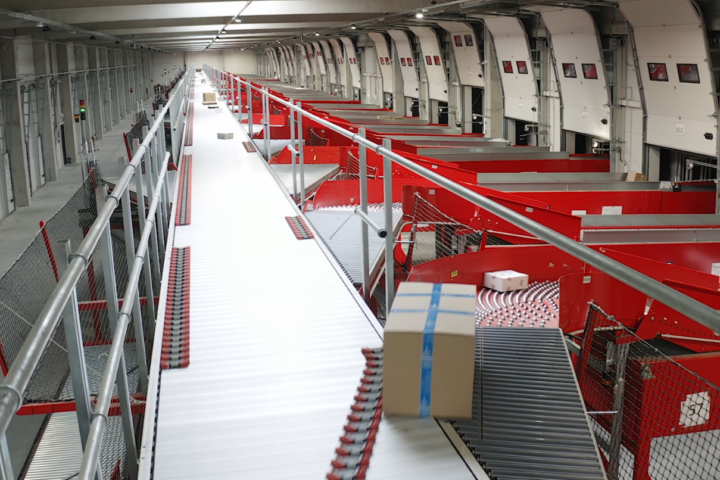Skills are the backbone of your success in the trucking industry, where employers actively seek out professionals equipped with the right expertise. As the demand for qualified drivers and logistics specialists grows, it’s necessary to strategically position yourself with in-demand capabilities that can elevate your career. This guide will walk you through the steps to identify these key skills and provide actionable tips to enhance your professional profile, ensuring you stand out in a competitive field and achieve your career goals.
Key Takeaways:
- Identify and develop in-demand skills in the trucking industry, such as logistics management and technology integration, to enhance your marketability.
- Network with industry professionals and engage in continuous learning to stay updated on trends and advancements in the trucking sector.
- Consider obtaining relevant certifications and training to demonstrate your expertise and commitment to potential employers.
Types of In-Demand Trucking Skills
Before you launch on advancing your career in the trucking industry, it’s vital to understand the types of in-demand trucking skills that employers are seeking. Developing a mix of these skills can set you apart from the competition and ensure that you remain a valuable asset in your field. Below is a breakdown of some vital skills that are currently in demand:
| Technical Skills | Soft Skills |
| GPS and Route Mapping | Communication |
| Vehicle Maintenance | Problem-Solving |
| Load Securement | Time Management |
| Safety Regulations | Adaptability |
| Freight Documentation | Team Collaboration |
Technical Skills
Trucking professionals like you must equip themselves with strong technical skills to succeed in this evolving industry. Mastering skills such as GPS and route mapping ensures that you can efficiently navigate the ever-changing landscapes while adhering to the necessary safety regulations. Additionally, possessing knowledge in vehicle maintenance can significantly reduce downtime, keeping your operations smooth and efficient. These skills enable you to not only perform your job effectively but also provide a competitive edge in the job market.
Soft Skills
Skills that encompass interpersonal and communication abilities are equally vital. Your soft skills can make a lasting impression on employers. They want individuals who can effectively communicate, solve problems on the fly, and manage their time adeptly. As a trucker, you might often work in a team environment, making teamwork and adaptability a necessity for success.
Another important aspect of soft skills involves emotional intelligence, which can greatly enhance your communication and problem-solving abilities. By developing these skills, you can foster healthy work relationships, manage stress better, and ultimately contribute positively to the work environment. Thou, the path to career advancement in trucking becomes more viable by honing a combination of both technical and soft skills.
Tips for Acquiring Trucking Skills
Some effective techniques can set you on the path to acquiring the trucking skills that are increasingly sought after in the industry. You can enhance your knowledge and capabilities by investing time in various methods, including:
- Attending vocational schools offering specialized trucking training
- Participating in online courses focusing on logistics and transportation
- Seeking hands-on experience through internships or entry-level positions
- Reading industry-related books and articles to stay updated on best practices
- Joining local trucking associations or groups to gain insights
The ability to adapt and learn quickly will significantly enhance your career advancement in the trucking field.
Learning Resources
Learning can take many forms, and it’s necessary for you to explore various resources that can help you develop your trucking skills. From online platforms like Udemy and Coursera, which offer courses tailored for logistics and safe driving, to local community colleges providing certifications, the opportunities are abundant. You might also find value in free resources, such as YouTube tutorials and webinars from industry experts.
Additionally, consider investing in officially recognized certifications such as the CDL (Commercial Driver’s License), which can not only validate your skills but also make you more appealing to potential employers. Engaging with digital forums and social media groups dedicated to trucking can further enrich your learning experience.
Networking Strategies
Assuming you are serious about building a solid career in trucking, it is vital to surround yourself with the right connections. Networking effectively can lead to opportunities for mentorship and job referrals. Attend industry conferences and career expos where you can meet seasoned professionals who can share valuable insights and advice.
Acquiring a strong network in the trucking industry involves actively participating in industry events, workshops, and even online forums. Engaging with other professionals fosters collaboration while providing you exposure to new ideas and skills. You can also create LinkedIn connections with key players in the trucking world or join Facebook groups focused on the industry. Cultivating these relationships enables you to exchange knowledge and job opportunities, making your transition into advanced roles smoother and more accessible. The more robust your network, the greater your chances to discover fulfilling roles in your career path.
Step-by-Step Guide to Enhancing Skills
Your journey towards enhancing your trucking skills begins with a clear and structured approach. This involves assessing your current capabilities, setting specific goals, and seeking ongoing education or hands-on experience. By systematically addressing each step outlined below, you can position yourself for success in the in-demand trucking industry.
| Step | Description |
| 1. Assess Current Skills | Evaluate your existing skills and identify areas for improvement. |
| 2. Set Goals | Establish clear, measurable targets for skill enhancement. |
| 3. Seek Education | Look for courses, workshops, or online training tailored to your needs. |
| 4. Gain Experience | Engage in practical applications, either through your job or through volunteer opportunities. |
| 5. Network | Connect with industry professionals to learn and grow. |
Assessing Current Skills
To advance in your trucking career, start by honestly evaluating your current skill set. List out the skills you possess, such as vehicle maintenance knowledge, route planning capabilities, and understanding of safety regulations. Use this self-assessment to pinpoint any gaps that may exist. This process will give you a clearer picture of where you currently stand and where you need to focus your attention in the industry.
To ensure a comprehensive assessment, consider seeking feedback from peers or supervisors. They can provide valuable insights into your performance and skill areas that require development. By analyzing both your strengths and weaknesses, you will create a solid foundation upon which to build your career path.
Setting Goals
Now that you have a clear assessment of your current skills, it’s time to set goals that align with your career aspirations. Having specific, achievable goals will help you maintain focus and motivation. Consider short-term goals, such as completing a particular training course or obtaining a specific certification, as well as long-term goals that may involve advancing to a higher position within your organization.
Setting goals is a vital process in your skill enhancement journey, as it keeps you focused on your desired outcomes. Make sure your goals are SMART: Specific, Measurable, Achievable, Relevant, and Time-bound. This framework will not only clarify your objectives but also motivate you to achieve them swiftly and effectively. As you progress, regularly review and adjust your goals to ensure they remain aligned with the ever-evolving demands of the trucking industry.
Factors Influencing Skill Demand
Once again, understanding the landscape of the trucking industry is vital for your skill advancement. Several factors play a significant role in shaping the demand for specific trucking skills, including:
- Technological Innovations
- Regulatory Changes
- Economic Fluctuations
- Industry Growth
- Consumer Preferences
With the evolving nature of the trucking industry, staying ahead means adapting your skills to the current demands. You’ll find that as various factors come into play, the need for certain skill sets will rise and fall. Recognizing these influences can aid you in planning your career path more strategically.
Industry Trends
Even as you navigate your career in trucking, it’s necessary to stay informed about the prevailing industry trends. The growth of e-commerce, for instance, has expedited the demand for last-mile delivery services, thereby amplifying the need for drivers skilled in navigating urban settings. Additionally, the push towards sustainability has fostered a growing requirement for environmentally conscious driving practices and familiarity with alternative fuel vehicles. By honing your skills in these trending areas, you can position yourself as a valuable asset in the market.
Another trend influencing skill demand is the acceleration in the use of technology within trucking operations. Companies are increasingly relying on data analytics, GPS technology, and automated systems to enhance operational efficiency. Familiarity with these technologies can set you apart from your peers, as employers often seek candidates who can adapt to and leverage these advancements.
Regional Variations
Variations in regional demands significantly affect the skill requirements in the trucking industry. Different geographic areas may prioritize distinct transportation needs based on their economic activities, infrastructure capabilities, and regulatory environments. For example, drivers in urban settings might require skills in defensive driving and navigational technology, while those in rural areas may need expertise in long-haul trucking. Understanding these regional nuances can enhance your employability.
With the vast differences across regions, you should take the time to research your area’s specific trucking needs. Certain regions may place greater emphasis on specialized training, such as handling hazardous materials or operating specific types of machinery. Learning about local freight patterns, weather conditions, and regulatory stipulations also prepares you for potential challenges unique to your region, putting you in a prime position to capitalize on job opportunities effectively.
Pros and Cons of Pursuing Trucking Skills
Unlike many other professions, the trucking industry offers a unique set of advantages and disadvantages when it comes to skill development. Understanding these pros and cons can help you make an informed decision about advancing your career in this field.
| Pros | Cons |
|---|---|
| High demand for skilled truckers | Long hours on the road |
| Potential for good earning opportunities | Physical and mental strain |
| Variety of specialized skills to learn | Periods of loneliness |
| Job stability in certain regions | Compliance with regulations can be daunting |
| Opportunities for advancement | Initial costs for training and certifications |
| Flexibility in job type and schedules | Potential work-life balance issues |
Benefits of Skill Development
Cons associated with pursuing trucking skills may weigh heavily on your decision-making process, but it’s important to also recognize the myriad benefits that come with skill development. By investing your time and effort in acquiring new skills, you can enhance your marketability in the trucking industry. You may find that specialized skills such as advanced driving techniques or safety compliance not only provide you with job security but also result in higher salary potentials and promote your overall career growth.
Additionally, engaging in continuous education and skill development allows you to stay updated with the latest technologies and practices in the industry. This not only ensures that you are equipped to handle the demands of modern trucking but also opens up diverse avenues for you. Whether you are considering moving into logistics management or perhaps venturing into driving specialized vehicles, enriching your skill set can create greater opportunities in your career path.
Potential Challenges
On the flip side, pursuing trucking skills does come with its challenges. You may find that the long hours and unpredictable schedules can make it difficult to maintain a healthy work-life balance. Moreover, the rigorous training and compliance requirements can be overwhelming, particularly if you are new to the field. These challenges may test your commitment, but they also serve to prepare you for a rewarding career.
This industry can present barriers, such as the financial burden of training costs and the stressful nature of being on the road for extended periods. Staying up-to-date with ever-evolving regulations may feel like a daunting task, and the potential loneliness on long hauls can impact your overall well-being. However, recognizing these challenges can help you develop strategies to navigate them effectively, ensuring a more satisfying experience as you advance your trucking career.
Additional Resources for Career Advancement
For those looking to enhance their career in trucking, leveraging available resources can be a game-changer. A variety of certifications and training programs specifically designed to build skills and competencies are readily accessible. These programs not only enhance your resume but also equip you with specialized knowledge that can set you apart from the competition. Many employers seek candidates who possess certifications in areas like safety management, logistics, and vehicle maintenance, as these skills can make a significant impact on operational efficiency and compliance.
Certifications and Training Programs
One effective way to elevate your qualifications in the trucking industry is by obtaining relevant certifications. Programs such as the Commercial Driver’s License (CDL) training and endorsements for specific vehicle types not only improve your driving skills but also increase your employability. Additionally, investing in courses focused on hazardous materials handling or fleet management can give you a competitive advantage, making you an asset to potential employers.
Professional Associations
Any serious professional in the trucking industry should consider joining professional associations, which offer a wealth of resources for career advancement. Organizations like the American Trucking Associations (ATA) and the Owner-Operator Independent Drivers Association (OOIDA) provide networking opportunities, industry insights, and access to workshops that can help you refine your skills. By joining these associations, you gain access to specialized forums and discussions that keep you updated on the latest trends and developments in the industry.
Understanding the benefits of being part of a professional association can provide significant leverage for your career. Not only do these organizations advocate for driver’s rights and industry regulations, but they also often host events that allow for valuable networking opportunities. Engaging with peers can lead to mentorship opportunities, job openings, and industry-specific advice that can positively influence your career trajectory. Thus, aligning yourself with reputable associations is a strategic move in advancing your trucking career.
To wrap up
From above, it is clear that advancing your career in the trucking industry requires you to develop in-demand skills that set you apart from the competition. By actively seeking out training opportunities and certifications, you empower yourself to take on more challenging roles, which may lead to better job security, increased earning potential, and overall career satisfaction. You have to stay informed about the latest technologies and practices affecting the industry to keep your skills relevant and in high demand.
As you look ahead, consider how you can integrate the insights and strategies discussed into your personal career plan. Emphasizing networking and professional relationships can further enhance your prospects and provide you with valuable mentorship and support. By focusing on continuous improvement and embracing the evolving landscape of the trucking industry, you position yourself for long-term success and fulfillment in your career. Your proactive approach to acquiring strategic skills will define your journey and outcomes in the trucking sector.
FAQ
Q: What are some in-demand trucking skills that can help advance my career?
A: In-demand trucking skills that can enhance your career include knowledge of advanced vehicle technologies, proficiency in logistics software, expertise in regulations and compliance, strong communication skills, and adaptability to changing industry trends. Developing skills in areas like safety management, fleet management, and customer service can also significantly boost your employability and opportunities for advancement within the industry.
Q: How can I acquire these in-demand skills in the trucking industry?
A: To acquire in-demand trucking skills, consider enrolling in specialized training programs offered by trucking schools or online courses. Many organizations provide workshops and certifications focused on various aspects of the trucking industry. Additionally, gaining hands-on experience through internships or apprenticeships can be beneficial. Joining industry associations and networking with professionals can also provide valuable insights and learning opportunities.
Q: How can these skills positively impact my career growth in trucking?
A: Acquiring and honing in-demand trucking skills can positively impact your career growth by opening up new job opportunities, making you a more competitive candidate for promotions, and expanding your professional network. Proficiency in current technologies and regulations can position you as a valuable asset to employers, potentially leading to higher salaries and enhanced job stability. Furthermore, strong skills in areas like customer relations can lead to roles in management or consultancy within the trucking sector.

















